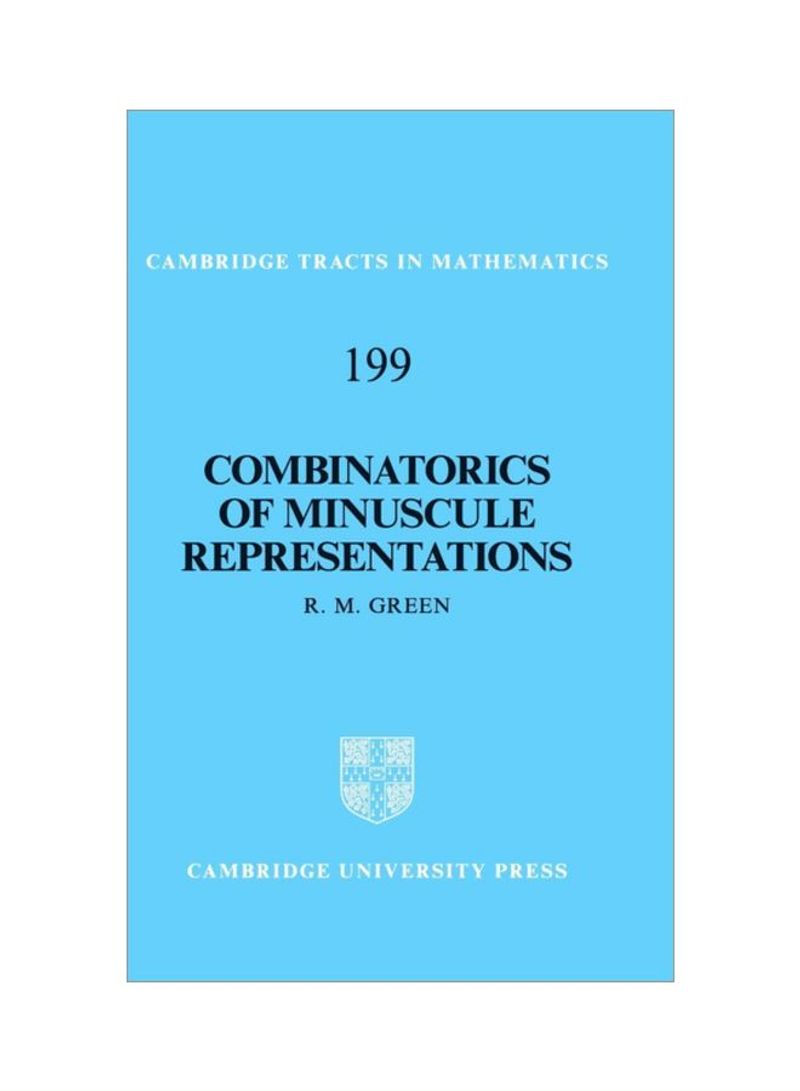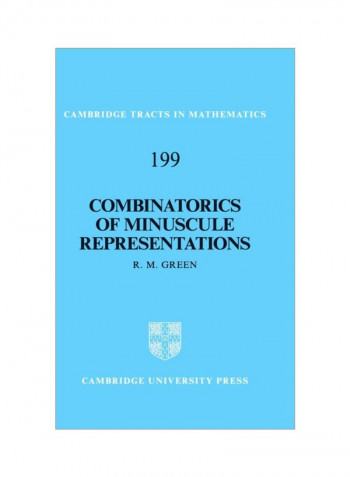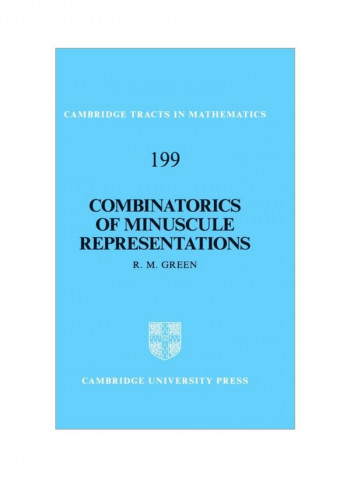Combinatorics Of Minuscule Representations Hardcover
Recommend
Sort by
Rating
Date
Specifications
Grade
New
Author 1
R. M. Green
Book Description
Minuscule representations occur in a variety of contexts in mathematics and physics. They are typically much easier to understand than representations in general, which means they give rise to relatively easy constructions of algebraic objects such as Lie algebras and Weyl groups. This book describes a combinatorial approach to minuscule representations of Lie algebras using the theory of heaps, which for most practical purposes can be thought of as certain labelled partially ordered sets. This leads to uniform constructions of (most) simple Lie algebras over the complex numbers and their associated Weyl groups, and provides a common framework for various applications. The topics studied include Chevalley bases, permutation groups, weight polytopes and finite geometries. Ideal as a reference, this book is also suitable for students with a background in linear and abstract algebra and topology. Each chapter concludes with historical notes, references to the literature and suggestions for further reading.
ISBN-13
9781107026247
Language
English
Publisher
Cambridge University Press
Publication Date
27 Jul 2016
Number of Pages
330
About the Author
R. M. Green is a Professor in the Department of Mathematics at the University of Colorado, Boulder. He is the author of about 50 papers, many of which concern the combinatorics of Coxeter groups and related topics.
Author 2
Pochan Chen
Editorial Review
This monograph could be read with profit not only by the specialist, but also by an interested graduate student with some background on Lie algebras.' Felipe Zaldivar, MAA Reviews 'The exposition [is] very clear. The book is strongly recommended to students and researchers who are interested in combinatorial aspects of representation theory.' Hiro-Fumi Yamada, Mathematical Reviews '... useful as a book for students, the book under review is particularly useful as a reference for researchers of relevant fields.' Qendrim R. Gashi, Zentralblatt MATH



